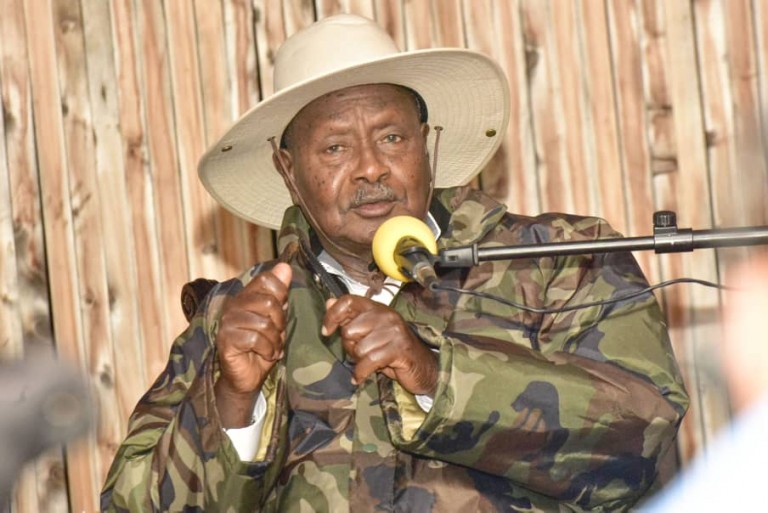President Museveni has thrown out a proposal to establish an Idi Amin Memorial Institute, labelling the former leader unfit for such a memorial establishment.
A team of Ugandans, this publication has learnt, wrote to the National Council for Higher Education (NCHE), seeking guidance on the licensing of the institute.
“This is a wrong request and it should be rejected […] it is not acceptable to licence an institute to promote or study the work of Idi Amin,” Mr Museveni wrote in response to a consultative letter from NCHE.
In an October 5 letter to First Lady Janet Museveni, addressed to her in the capacity of Education and Sports minister, Mr Museveni says Amin’s regime was unconstitutional, committed multiple atrocities against Ugandans, and destroyed the economy.
Officials at the Education ministry confirmed the letter.
Proponents of the establishment of the institute and the general review of Amin’s legacy, however, view President Museveni’s stance as politically motivated.
In his letter, Museveni avers: “Idi Amin’s government was clearly illegal. It had no right to install itself over our country.”
Museveni further asserts thus: “Apart from his unconstitutionality, he committed a lot of crimes—the killing of the Acholi and Lango soldiers in Mbarara, the killing of the prisoners in Muukula prison, and the killing of Ben Kiwanuka, Basil Bataringaya and his wife and so many other killings.”
Amin took over the presidency in 1971 through a coup, having deposed former President Apollo Milton Obote. He would lead the country until 1979. He died on August 16, 2003 in exile in Jeddah, Mecca in Saudi Arabia and was buried there.
Mr Hassan Fungaroo Kaps, the former Obongi County lawmaker who is the publicist of the team behind the institute, yesterday called into question not only the President’s reasons but also the legal basis of his directive.
“President Museveni came into power by the barrel of a gun, against an elected regime—the Obote II government. Just like Idi Amin came to power through a coup. Amin took one day; Museveni’s took five years,” he argued in response to the issue of unconstitutionality of the Amin regime.
He added: “Killings have occurred in Uganda, the question is who committed them? And Idi Amin died 20 years ago, but killings are still happening, some undebatable and attributed to security agencies, like during the campaigns.”
According to Mr Fungaroo, this reason is often advanced to pit people against each other whenever it serves the regime. He further argues that Amin’s expulsion of Indians, which Museveni says destroyed the economy, was originated by the original East African Community leaders.
Mr Fungaroo said they wrote and engaged the NCHE, the institute mandated to license the establishment of universities and tertiary institutes for licensing.
Such memorials are a normal global and national practice for past leaders, ranging from libraries in the United States to the Julius Nyerere Leadership Centre at Makerere University.
The institute was conceived with the purpose of creating a platform to advance the history of Uganda. It would champion research, peace and reconciliation, and conflict resolution, Mr Fungaroo told Sunday Monitor.
“Idi Amin should be credited for the good he did […] why is there fear of the re-examination into history, the work and life of Idi Amin? If there is nothing to fear, he should allow this intellectual discourse to continue,” the Forum for Democratic Change (FDC) party member reasoned.
Mr Fungaroo said they will seek an audience with the President to discuss the matter, as well as the wider West Nile development agenda that he says is linked to the Amin legacy.
The Sub-region has, among others, remained the only one not connected to the national power grid, with citizens accusing the NRM government of not prioritising the matter. “It is like the people of West Nile are serving, secretly, the punishment of Amin. Even in his letter, he refers to them [as] Idi Amin’s people,” Mr Fungaroo noted.
Mr Mwambutsya Ndebesa, a lecturer of Humanities and Social Sciences at Makerere University, opined that it defeats logic to establish an institute to advance peace in Amin’s name.
“When people are missing and yearning for freedom, they may idolise dictators of the past. He may have done some good, but they do not merit. Maybe we can establish an institute to study all these dictators,” he said.




